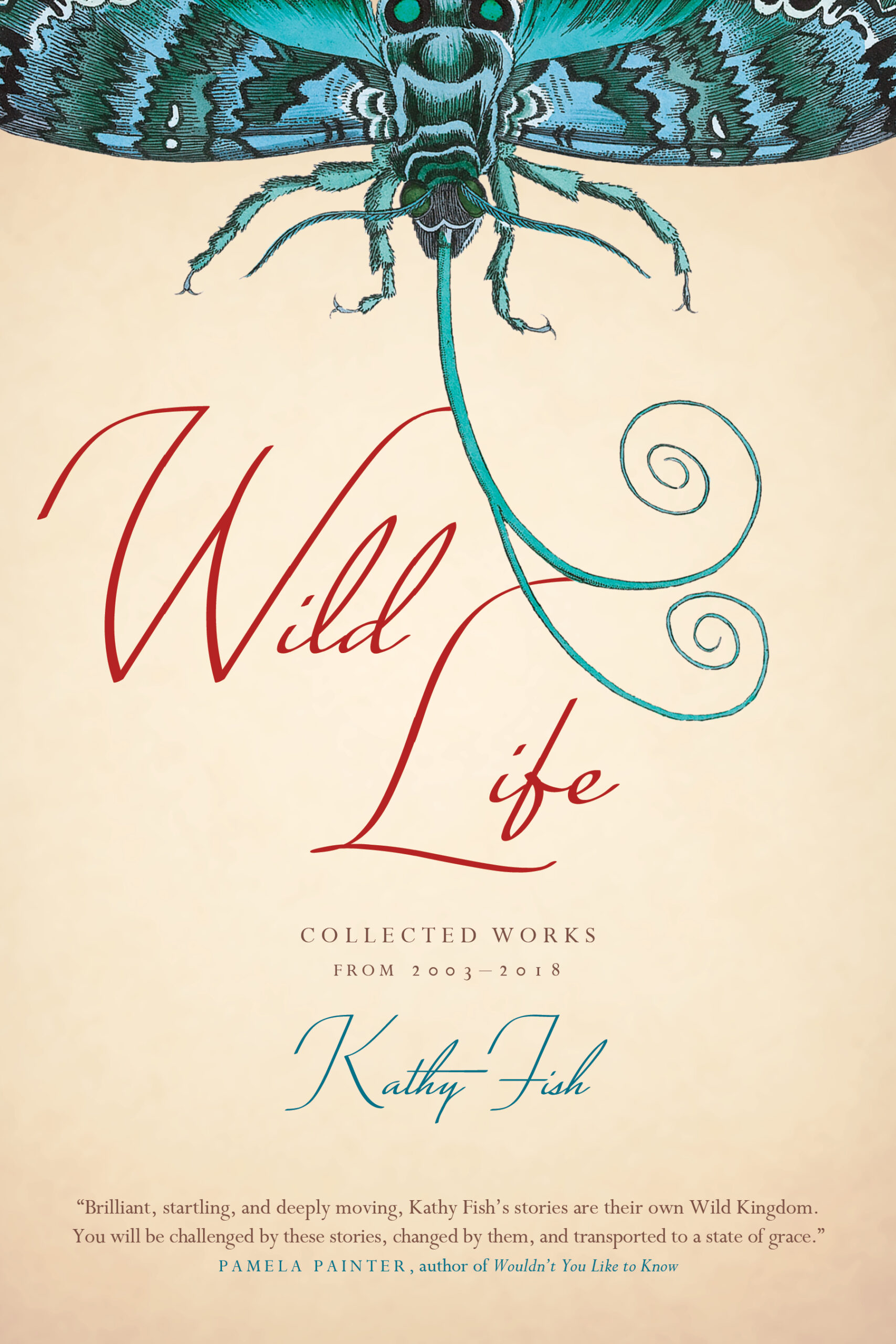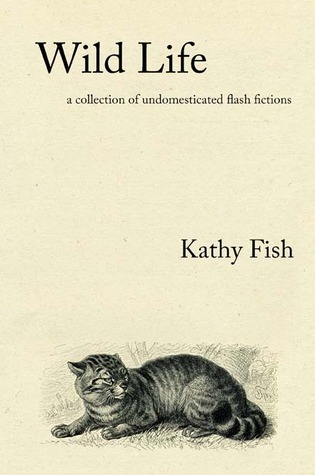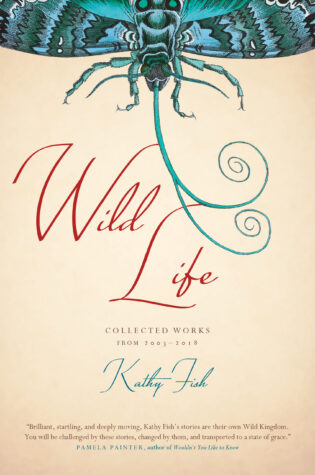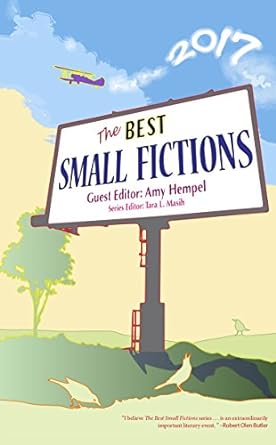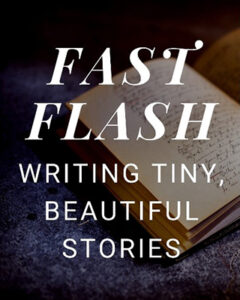Interview with Kathy Fish
Author
Questions by Peter McAllister
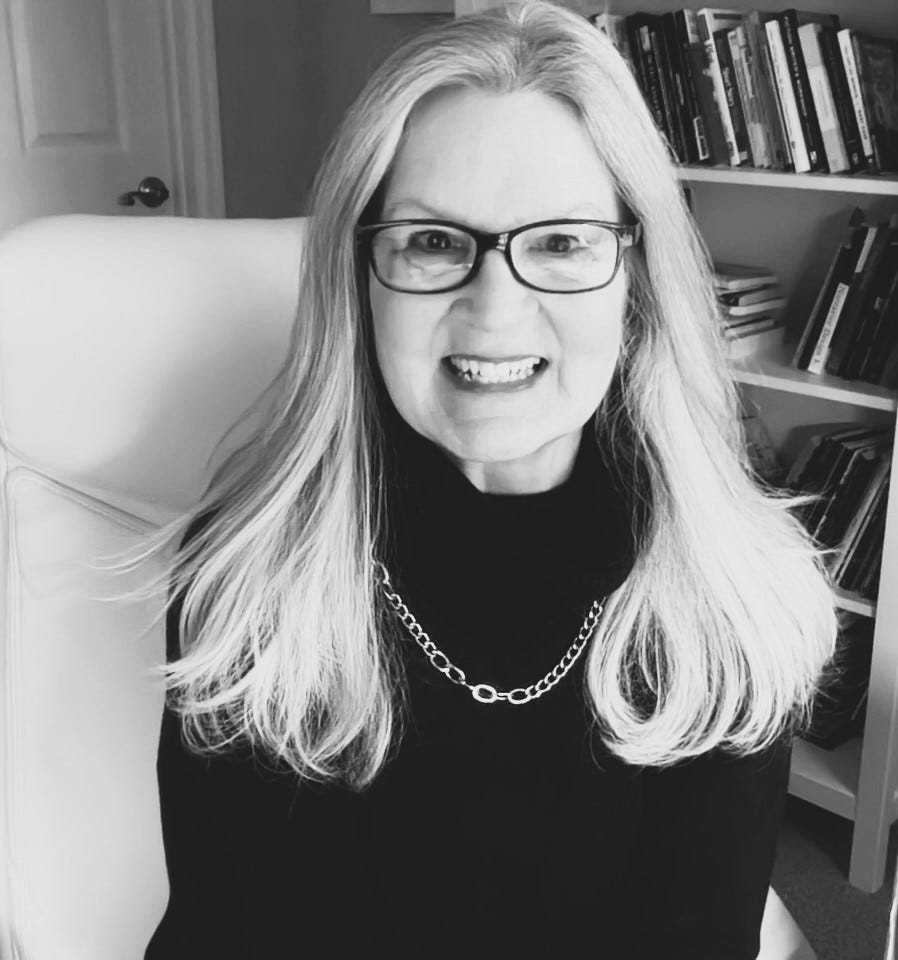
Kathy Fish
Which flash fiction, short story, or prose poetry writers have influenced you the most and how?
Joy Williams, Susan Steinberg, Sara Lippmann, Sabrina Orah Mark, Susan Cisneros, Aimee Bender, Amy Hempel, Pamela Painter, Han Kang, Ada Límon, Kim Chinquee, Kim Addonizio, Lydia Copeland Gwynn, Tina May Hall, Jenny Offill, Venita Blackburn, Cathy Ulrich, Grace Paley, Beth Ann Fennelly, Miranda July, Anne Carson, Khadija Queen, Lydia Davis, Mary Robison, and Diane Seuss. Lately, I’m fangirling Claire Keegan. I have read every book she’s published. All of these writers have at one time or another opened my eyes to what short stories, flash fiction, prose poetry and poetry can do. I realize these are all women, but truly they are the short form writers whose work I teach, whose work makes me swoon.
You once said that a lot of published flash fiction “is really more of a scene than a story”. Do you think that ‘single-scene’ quality is something that defines flash versus longer short fiction? And how do you feel the planning and writing of a flash piece differs from that of a short story?
A single scene can be a very powerful and work as a complete flash fiction. The trick is to allude to more beyond the confines of the scene. Something that resonates emotionally that’s “bigger” than the scene itself. In short fiction and novels, scenes are building blocks and typically don’t work on their own. They’re not meant to.
I myself almost never “plan” a flash fiction, but yes, flash needs to do all its work in a limited space. That drives how we go about writing it. There’s no room for anything extraneous to the storytelling. It’s more aimed in that way. It’s not so much this, this, this, and this happened; it’s more, this one thing happened, and this is how it reverberates.
Flash fiction seems to be flourishing in the social media era, and a parallel golden age is taking place in prose poetry. What, in your mind, distinguishes flash fiction from prose poetry, or are they too similar to keep fully distinct?
Oh I just read the best explanation of the difference from Robert Olen Butler, so I will shamelessly steal it:
“To be brief, it is a short short story and not a prose poem because it has at its centre a character who yearns.”
But there are published prose poems that feel like flash to me and vice versa. In many ways, the distinction lies in the eye of the beholder.
You’ve mentioned “emotional urgency” as a crucial driver of flash fiction. How do you feel intensity and/or compression should be balanced with plot or characterisation in a successful flash fiction piece?
I just finished teaching a weekend workshop on this very thing! I would give more weight to emotional urgency, actually, than characterisation and plot. Robert Olen Butler also said this of plot in flash fiction: “Plot, in fact, is yearning challenged and thwarted. A short short story, in its brevity, may not have a fully developed plot, but it must have the essence of a plot: yearning.” I feel like characterisation comes through organically via emotional urgency, along with voice.
Wild Life, your amazing “best of” collection, contains 50 stories whittled down from a bibliography of over 200! How did you decide which pieces to include in it?
Thanks for saying that about Wild Life. I wanted to stay true to the spirit of the original collection of the same name, also published by Matter Press, so a lot of my decisions had to do with this idea of “wildness.” I don’t like the idea of a collection being “here’s everything I’ve written in the last ten years.” I like to think of a collection as a piece of intentional art, where all the works feel organic to one major feeling or theme. There were strong stories I love that didn’t make the cut for that reason.
You’ve described short story and flash fiction collections as their “own piece of art” that require an alternation of “highs and lows.” Is a pattern of more “intense and ‘softer’ stories” your primary method of collection structuring?
Yes! I’ve often compared the task of putting together a flash collection as a symphony. Just as we aim for “music” in our individual pieces (varying sentence length, paragraph length, attention to cadence, etc.), we should do the same with a collection. So yes, highs and lows, emotional intensity, point of view and so forth. But also paying attention to where one piece leaves off and the other picks up. I say all of this recognizing that some readers just pick up the book randomly and read all over the place, so none of these things matter in the end, but they matter to me!
Just as novelists employ a range of physical, virtual and conceptual strategies to structure a book, short form writers range from using post it notes to the latest writing software to structure their collections. How does your story selection process when putting together a collection manifest?
I’m lucky to have a very long dining room table. We only use it for holiday meals, but it’s GREAT for organizing a collection! I print all my stories out and lay them around the table, then I walk around just – at first – getting a visual feel for them. I use post it notes for the things I’ve already mentioned. Different colours for different aspects, so I don’t have five stories in a row that deal with death or coming of age or whatever. I like to vary the stories formally as well. I should say, too, that once I’m putting a collection together, I take a fresh look at all the stories, whether they’ve been published or not. I see it as another opportunity to revise and polish, often toward the goal of making the pieces fit together better.
You teach a highly popular series of online writing workshops. How do you feel your writing and teaching processes inform each other?
I’m absolutely a better writer because I teach. Teaching is a marvellous way to learn anything. Just finding stories that exemplify various craft concepts is a lesson in deep reading. I learn so much from reading the brilliant work of my peers. I love sharing my passion for flash as a form, and seeing that light a fire in my students. It inspires me to keep learning and growing in my own work. I also take workshops from writers I admire. I love being in the student chair.
What are you working on at the moment?
I’m pulling together a new collection! It centres around the themes of time and memory. The way our brains work and don’t work in recalling trauma. I’m playing around a lot with form, innovating and experimenting. I’m focused on creating a very unique piece of art, slowly, intentionally, taking great care with every piece before moving on to the next. Ooh that sounds so pretentious, doesn’t it! But this is my way of saying, I’m slow. Don’t look for it any time soon, ha.
About Kathy Fish
Kathy Fish’s short stories, flash fiction, and prose poems have recently appeared in Ploughshares, Washington Square Review, Waxwing Magazine, Copper Nickel, the Norton Reader, and Best Small Fictions. Her fifth collection, Wild Life: Collected Works from 2003-2018, is now in its 3rd print run with Matter Press. She is a recipient of the Copper Nickel Editor’s Prize and a 2020 Ragdale Foundation Fellowship. Her highly sought after Fast Flash© workshops, begun in 2015, have resulted in numerous publications and awards for the hundreds of writers who have taken part. She publishes a free monthly newsletter, The Art of Flash Fiction, which includes craft articles and writing prompts. She is currently seeking representation for her craft book of the same name. Visit Kathy’s website. Find Kathy on Twitter.
About Peter McAllister
Peter’s writing blurs the boundary between novel and short story collection. He was shortlisted in the Hammond House International Literary Prize and the Ironclad Creative Awards in 2023. His short stories and poems have appeared online, in print journals and in numerous anthologies and his debut book is slated for publication. Peter studied English Literature at The University of Cambridge, was awarded a Distinction for his MA in Creative Writing and is currently working towards his PhD at Exeter University. He is the editor and co-founder of Inkfish Magazine and a committee member for the Penzance Literary Festival. He is the Inaugural Liskeard Library Writer in Residence.


